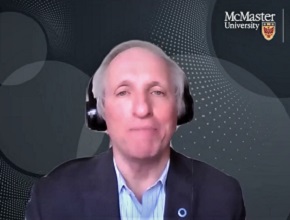Efpeglenatide in type 2 diabetes
Background: Efpeglenatide is a novel exendin-based glucagon-like peptide-1 (GLP-1) receptor agonist. Its effect on cardiovascular and renal outcomes in patients with type 2 diabetes at risk for adverse cardiovascular events is uncertain.
Methods: This was a randomized, placebo-controlled trial evaluating efpeglenatide in patients with type 2 diabetes and either a history of cardiovascular disease or current chronic kidney disease, defined as an estimated glomerular filtration rate (eGFR) of 25 to 59.9 mL/min/1.75 m2, plus ≥1 other cardiovascular risk factor. Patients were randomly assigned in a 1:1:1 ratio to receive efpeglenatide, 4 or 6 mg, or placebo, by weekly subcutaneous injections. The primary outcome was the first major adverse cardiovascular event (MACE), comprising a composite of nonfatal myocardial infarction, nonfatal stroke, or death from cardiovascular or undetermined causes.
Results: In total, 4076 participants were enrolled, of whom 2717 received efpeglenatide and 1359, placebo. During a median follow-up of 1.81 years, a MACE occurred in significantly fewer patients who received efpeglenatide (7.0%; 3.9 events per 100 person-years) compared with the placebo group (9.2%; 5.3 events per 100 person-years): hazard ratio (HR), 0.73; 95% CI, 0.58-0.92; P = .007 (the number needed to treat for 1.81 years to prevent 1 MACE = 45). A composite renal outcome event (a decrease in kidney function or macroalbuminuria) occurred in 13.0% of patients who received efpeglenatide and in 18.4% of those who received placebo: HR, 0.68; 95% CI, 0.57-0.79; P < .001. Diarrhea, constipation, nausea, vomiting, or bloating occurred more frequently with efpeglenatide than with placebo.
Conclusions: The authors concluded that weekly subcutaneous injections of efpeglenatide at a dose of 4 or 6 mg reduced the risk for adverse cardiovascular events in at-risk patients with type 2 diabetes.
McMaster editors’ comment: As with GLP-1 receptor agonists structurally similar to human GLP-1 (liraglutide, semaglutide, dulaglutide), the use of novel exendin-based efpeglenatide improves cardiovascular outcomes in patients with type 2 diabetes. It is noteworthy that the beneficial effect of efpeglenatide appeared to be independent of sodium-glucose cotransporter 2 (SGLT-2) inhibitor use, which occurred in ~15% of patients and which also has been shown to improve cardiovascular outcomes.
 English
English
 Español
Español
 українська
українська







